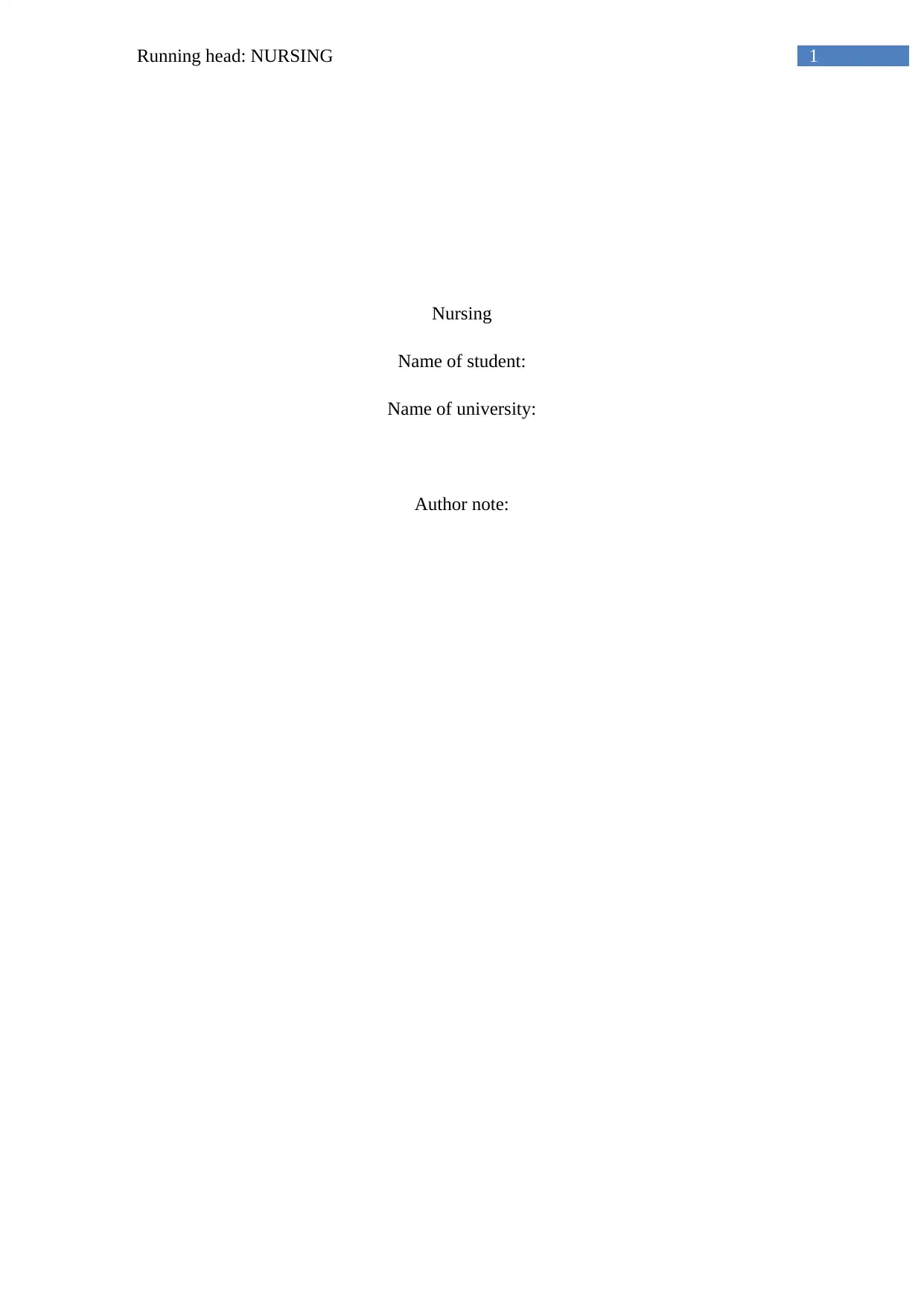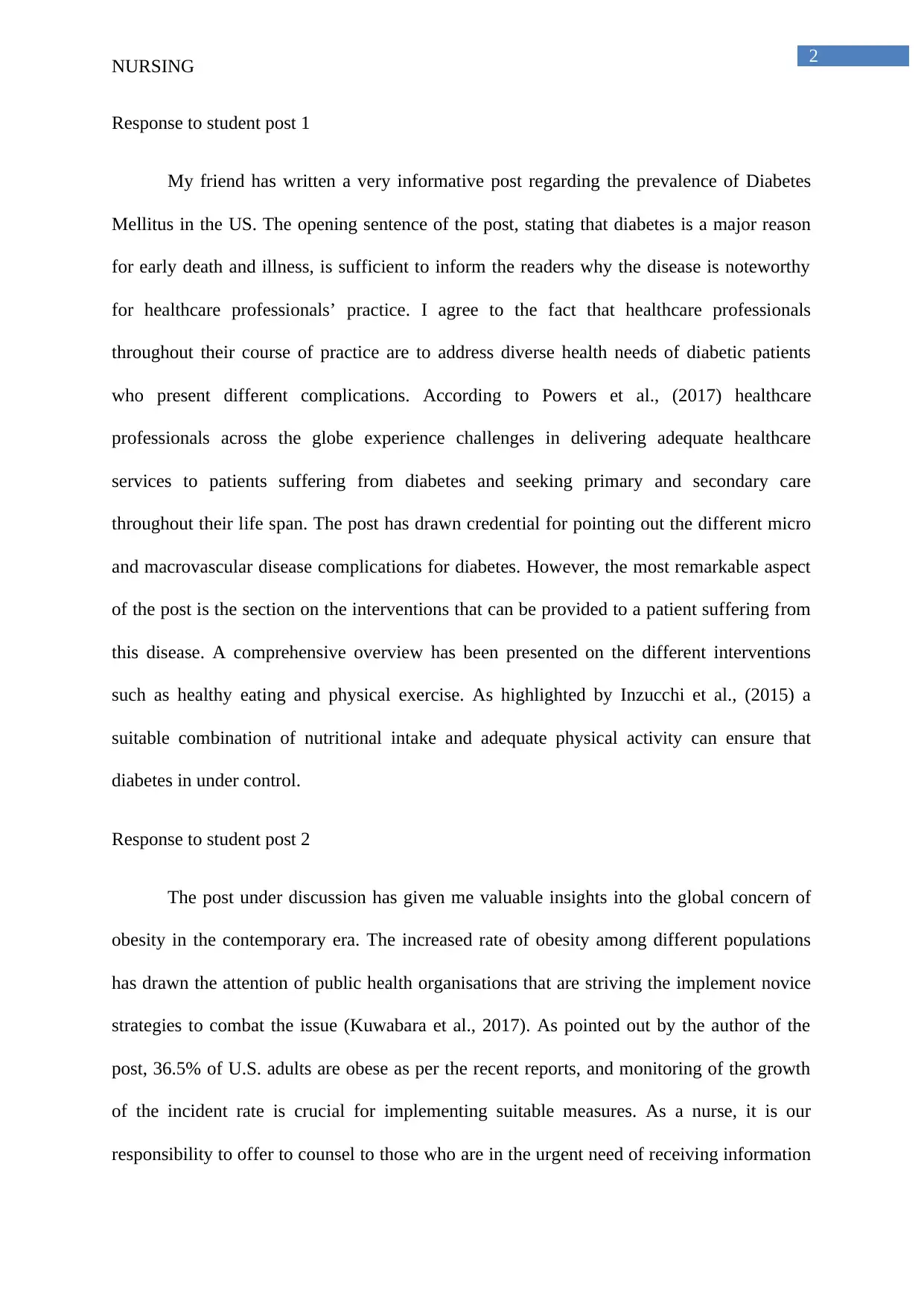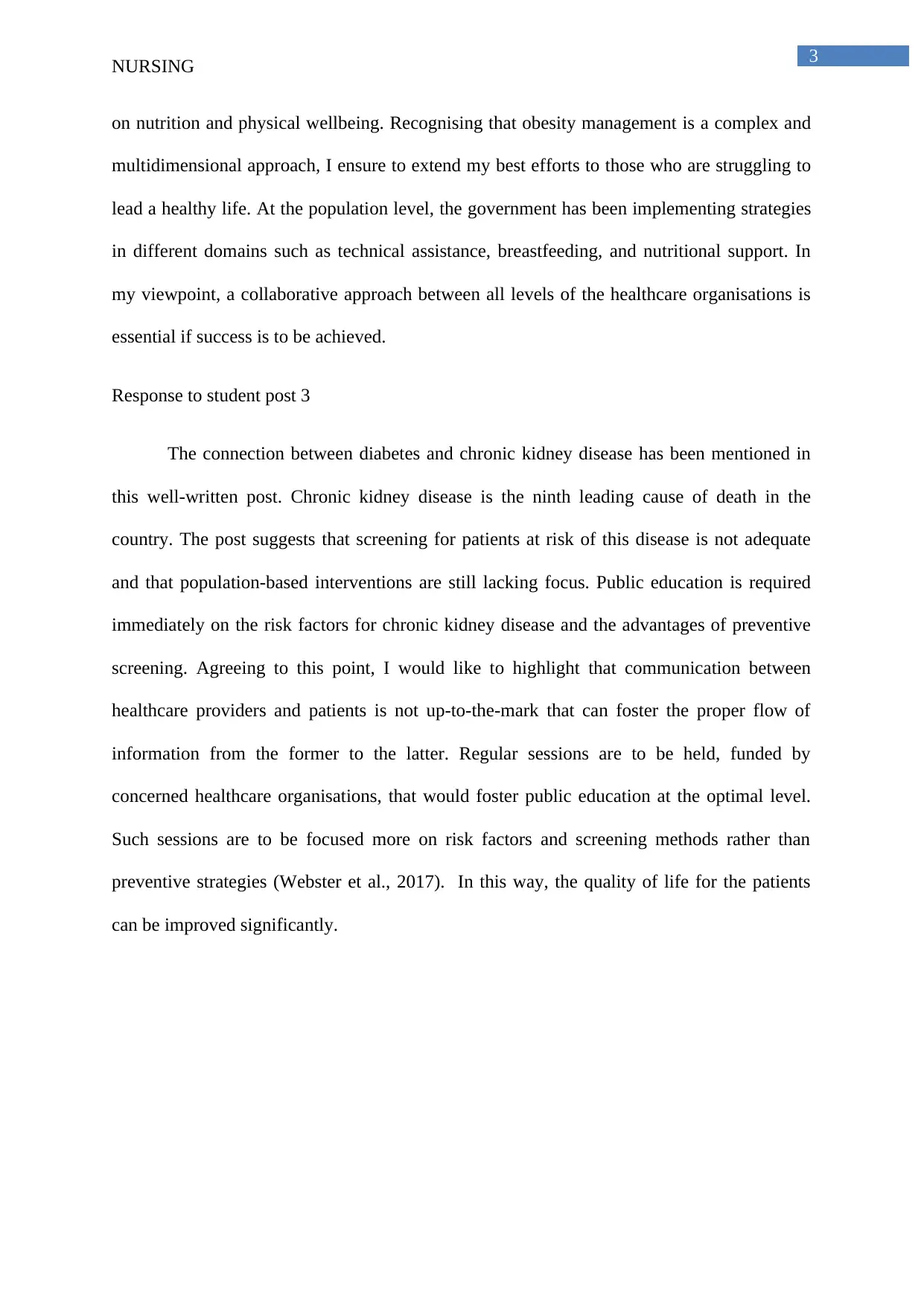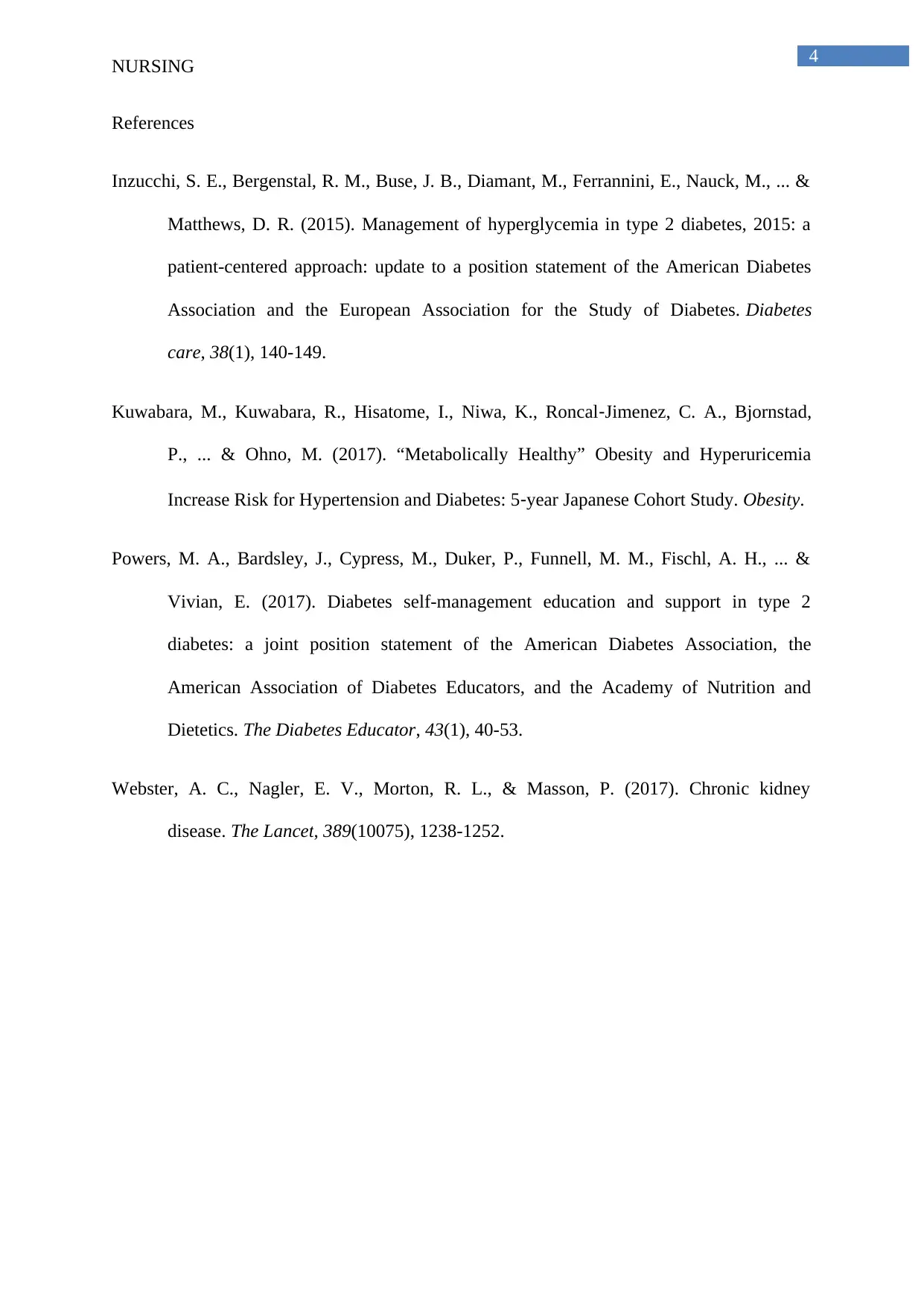University Nursing Student's Responses to Healthcare Discussion Posts
VerifiedAdded on 2020/05/04
|4
|873
|30
Homework Assignment
AI Summary
This assignment presents a nursing student's responses to three different discussion posts, focusing on prevalent healthcare issues. The first response addresses a post on the prevalence of Diabetes Mellitus in the US, highlighting its impact on healthcare practice and the importance of interventions like healthy eating and physical exercise. The second response discusses a post about the global concern of obesity, emphasizing the role of nurses in providing counsel on nutrition and wellbeing, and the need for collaborative approaches at the population level. The third response engages with a post on the connection between diabetes and chronic kidney disease, underscoring the need for improved patient-provider communication and public education on risk factors and screening methods. The student supports their responses with references to relevant research and literature on these topics.
1 out of 4











![[object Object]](/_next/static/media/star-bottom.7253800d.svg)